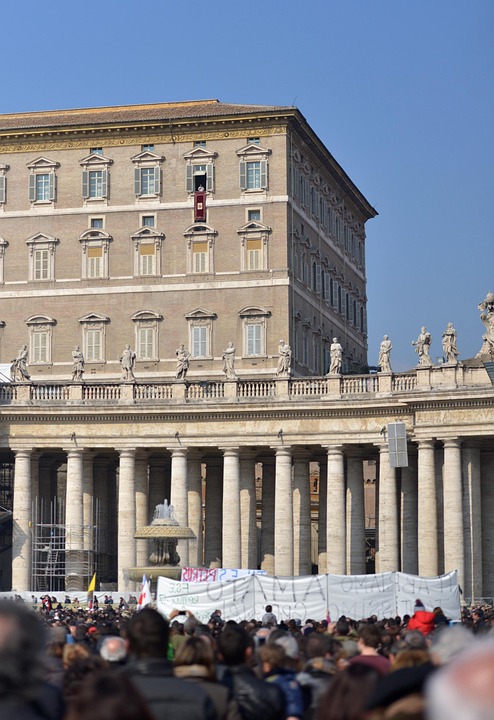Pope Francis: The Journey of a Humble Shepherd
Pope Francis, born Jorge Mario Bergoglio on December 17, 1936, in Buenos Aires, Argentina, has emerged as one of the most influential religious figures of the 21st century. Known for his humility, progressive stances, and commitment to social justice, he has reshaped the Catholic Church’s relationship with the world, positioning himself as a shepherd who walks with his flock, rather than ahead of them. His journey from the streets of Buenos Aires to the Vatican is a testament to his belief in serving the marginalized and promoting compassion as central tenets of faith.
Early Life and Formation
The son of Italian immigrants, Bergoglio grew up in a modest household that instilled in him a strong sense of community and social responsibility. His early education at the Salesian school nurtured his spirituality, and growing up in a diverse city exposed him to the complexities of social inequality, poverty, and injustice. After joining the Jesuits in 1958, he completed his theological studies and began a fulfilling pastoral career. His experiences working in various parishes in Buenos Aires deepened his understanding of the struggles of ordinary people and fostered his commitment to social outreach.
A Shepherd in the Urban Wilderness
Before becoming pope, Cardinal Bergoglio served as the Archbishop of Buenos Aires from 1998 to 2013. He became known for his empathetic pastoral approach, often favoring the poor and marginalized in his ministry. Rather than residing in the archbishop’s palatial residence, he chose to live in a simple apartment, using his resources to help the needy. His work during the economic crises in Argentina showcased his dedication to social justice; he organized food drives and advocated for housing for the homeless.
Bergoglio was also a vocal critic of corruption within the Church and society, emphasizing the need for reform and accountability. His focus on humility and service articulated a vision of the Church as a refuge for the downtrodden rather than an institution of privilege.
Papacy: A New Kind of Leader
In March 2013, Bergoglio was elected as the 266th pope, taking the name Francis in honor of St. Francis of Assisi, the patron saint of the poor. His election marked a significant departure from previous papacies, embodying a shift towards a more accessible and engaging leadership style. Pope Francis immediately made headlines by breaking traditional protocols, from his simple lifestyle to his willingness to engage with the media and public directly.
His heralding of themes such as mercy, inclusion, and environmental stewardship, encapsulated in his encyclical Laudato Si’, has sparked global conversations on critical issues. By framing the environmental crisis as a moral issue, he urged the world, particularly wealthy nations, to reconsider their impact on the planet and advocate for those most affected by climate change. This focus on the environment, combined with a push for social justice, has resonated with many, especially younger generations seeking purpose and action against global injustices.
A Voice for the Marginalized
Pope Francis has expanded the Church’s outreach to marginalized groups, including LGBTQ+ individuals, refugees, and those affected by poverty. His oft-repeated call to "build bridges, not walls" emphasizes the importance of compassion and understanding in a world increasingly marked by division. He has spoken out against human trafficking, the plight of migrants, and the injustices faced by Indigenous peoples, positioning the Church as a champion of human rights and dignity.
Moreover, his approach to the priesthood has been revolutionary, advocating for a more inclusive Church that welcomes all backgrounds and experiences. Through gestures like washing the feet of prisoners and women on Holy Thursday, he has reminded the world of the fundamental Christian call to serve others humbly.
Challenges and Criticisms
However, Pope Francis’s journey has not been without challenges. His progressive stance on various issues has drawn criticism from conservative factions within the Church, who argue that his views undermine traditional Catholic teachings. Issues such as divorce, remarriage, and the Church’s approach to LGBTQ+ issues remain contentious, creating a complex balance as he seeks to foster dialogue within a divided institution.
Nonetheless, Francis remains committed to a Church that is open, inclusive, and in dialogue with the modern world. His insistence that "the Church is not a museum, but a field hospital" reflects his desire for an adaptive and responsive Church that addresses contemporary challenges and the needs of humanity.
Conclusion: A Humble Shepherd for Today
Pope Francis’s papacy has been characterized by a profound authenticity and humility that resonates with many around the globe. He embodies the qualities of a true shepherd who walks alongside his people, advocating for social justice and compassion. His call for a Church that serves rather than lords over, and his vision for a world united in understanding and empathy, are clearer now than ever.
As he continues his mission, Pope Francis stands as a potent symbol of hope and renewal for both the Catholic Church and the wider world, reminding everyone that faith can inspire action and that love can bridge even the widest divides. Through his journey, he exemplifies the power of humility and service—qualities that are more essential today than ever before.
[For further reading on Pope Francis’s impact and teachings, visit [modern_footnote_source_link].]






















Add Comment